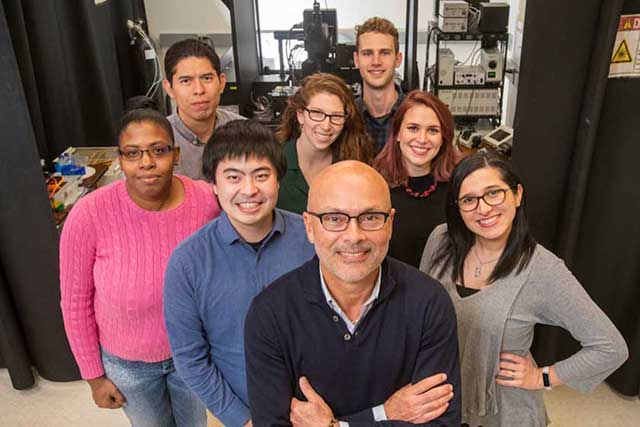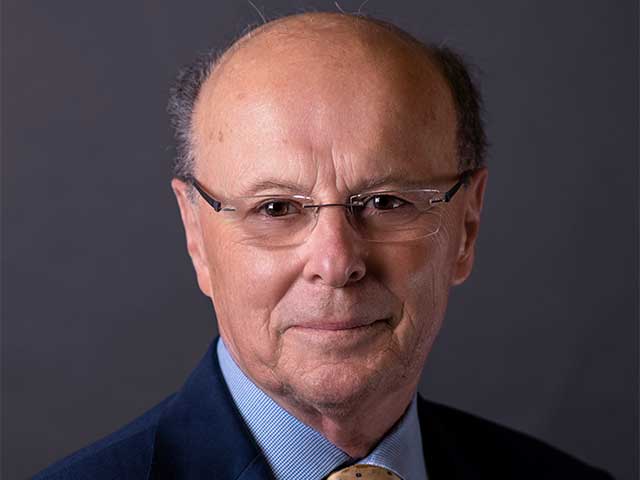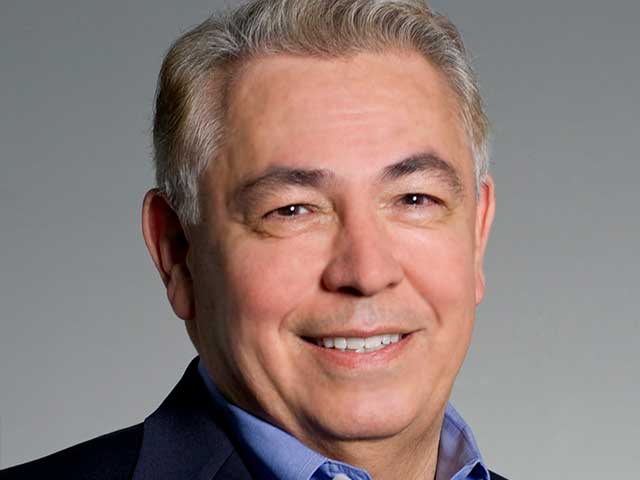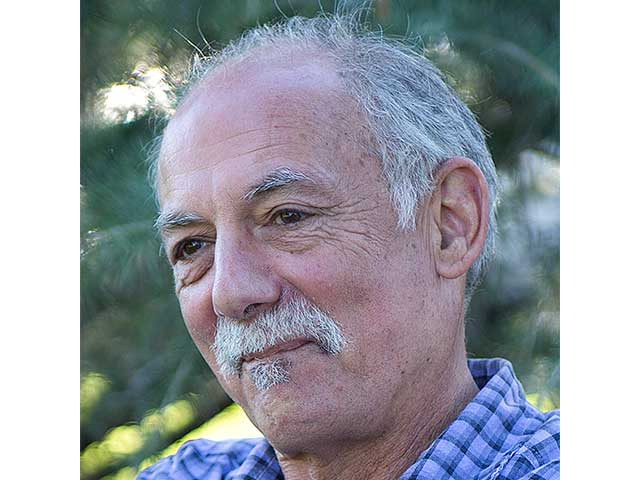
Summer 2021 Newsletter
Spotlight on UC Davis
Comings & Goings

Research in the Santana Laboratory, pictured above, focuses on cardiac and vascular smooth muscle. One of the lab’s ongoing projects investigates the molecular mechanisms underlying arrhythmias during heart failure. A second ongoing project focuses on mechanisms controlling the diameter of arteries and arterioles in the brain and heart.
“What excites me the most about the A.P. Giannini Foundation is having the opportunity to work with an outstanding team committed to supporting and developing talented young scientists committed to the generation and transmission of new knowledge that will improve the lives of all.” ~Dr. Luis Santana

The Foundation wishes to thank Frederick J. Meyers, M.D., MACP, for serving on the Scientific Advisory Committee for the past 11 years. Dr. Meyers is Director, Center for Precision Medicine and Data Sciences; Distinguished Professor of Internal Medicine, Hematology and Oncology; Director of Research Education and Career Development in the UC Davis Clinical and Translational Science Center; and Associate Director of Cancer Education, Training and Workforce Development at the UCD Comprehensive Cancer Center.
“The early career investigators who apply to the A.P. Giannini Foundation are gifted with remarkable disciplinary excellence. The financial support of the Foundation facilitates their pathway to scientific independence, and the professional development programs of the Foundation facilitate the scholars’ full potential as team-based scientists committed to equity and to monitoring the next generations of diverse scholars. I have been inspired each year by the energy of the Board and by the commitment of the applicants.” ~ Dr. Fred Meyers
Distinguished Alumni at UC Davis
Raymond Rodriguez, Ph.D.

Raymond Rodriguez, Ph.D., was a 1974 Fellow at UCSF in the Department of Microbiology. He is Emeritus Professor of Genetics, Section of Molecular and Cellular Biology, and founder and former chairman of the board of Ventria Bioscience.
As a Fellow, Dr. Rodriguez co-developed the first NIH-approved molecular cloning vector, pBR322. The 1977 publication describing the construction of pBR322 is a Citation Classic, having been cited over 7,000 times. Today, the main components of pBR322 can be found in many plasmid vectors, and the technology serves as the foundation for the biotechnology industry.
Dr. Rodriguez’s current research interests include nutritional genomics, the study of diet-gene interactions with the goal of developing innovative solutions to disease prevention and treatment, and synthesizing human proteins in rice cells. Dr. Rodriguez is a big proponent of team science. “As a program manager, I identify the best minds on campus and bring them together. Getting from the test tube to the hospital, or from the lab bench to the bedside, requires multiple areas of expertise. We need to collaborate.”
Dr. Rodriguez’s advice for young scientists is to keep their professional integrity intact. “I’ve learned in my 42-year career that you have to do things in a very ethical manner. It is possible to have a long, enjoyable career without bringing a conflict of interest into the laboratory.”
Jay V. Solnick, M.D., Ph.D.

Jay Solnick, M.D., Ph.D., was a 1989 Fellow at Stanford University in infectious diseases. He is Professor Emeritus in the Departments of Internal Medicine and Medical Microbiology and Immunology. Dr. Solnick’s research studies the gastric pathogen Helicobactyer pylori, which causes peptic ulcer disease and stomach cancer.
As he reflects on his illustrious career, Dr. Solnick believes that one of the metrics of success in biomedical science that is hardest to achieve is training other scientists “to do what you’ve done.” He is most proud of successfully writing a training grant that for the past 20 years has provided NIH support for graduate students and postdocs at UC Davis.
Dr. Solnick’s advice for young scientists is twofold. First, engage with colleagues outside of one’s lab, outside of one’s division, and even outside of one’s school. “Get help, lots of help, from many different people with many different perspectives.” Second, for postdocs who are interested in academic careers, Dr. Solnick encourages mentees to find a passion and follow where it leads. “Don’t give up. If [an academic career] is something you really want, you can get it, but in the words of [reggae singer] Jimmy Cliff, you must try, try, try.”